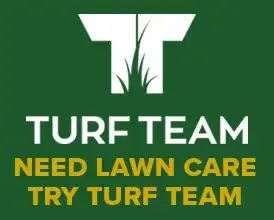The Trick To Keeping Raccoons Away From Your Wilmington Property

No matter what kind of life we live or what kind of work we do, it seems we always have more than enough to worry about. Kids to feed, bills to pay, and how you’re going to jump through your boss’s hoops are just the tip of the iceberg. So, have you ever really put any thought into raccoon control on your property? Or do you stick with some sort of “that won’t happen to me” strategy? Let’s take a look at why a hands-off, hope-for-the-best approach to raccoon prevention is leaving you exposed to far too much risk.
Raccoons: Resourceful, And Sometimes Rabid
These grey and black pests are about two to three feet in length and can be easily identified by their black-ringed tail and the black “mask” they feature over their faces. Their ideal habitat includes a wooded area with plenty of trees and a nearby water source. While they’ll typically build a den in a hollow tree, they’ll also live in ground burrows, in between rock crevices, small caves, and haystacks. When they decide that nature isn’t providing enough cover for them, they might set up shop inside of a residential home in attics, chimneys, and underneath porches.
The problem with having raccoons on your property is what they carry around with them. Along with diseases, fleas, and ticks that they can easily transfer to your pets, they’ll also transfer raccoon roundworm, an intestinal parasite, which can create severe illness in humans. Even more troublesome, raccoons are known spreaders of the rabies virus, and it’s especially bad over here on the east coast.
They’ll transfer rabies to you, your family members, and your pets through any sort of bite, so if you see a rabid raccoon on your property, do not try and get rid of it yourself. Not all raccoons have rabies, but if you notice one that has trouble walking, has wet or matted hair, or high levels of aggression, and is making loud, peculiar noises, then this pest is most likely infected. Call the experts at Bug-N-A-Rug Exterminators for wildlife control in Wilmington and the surrounding areas to keep your family and home safe!
Combatting Trash Bandits
Raccoons will eat almost anything. In the wild, they go back and forth between plants and other animals like mussels, frogs, small fish, mice, rabbits, and bird eggs. However, they don’t usually come to your property looking for those things. When raccoons hop your fence and begin searching around the yard, they’re looking for one of their favorite meals, trash.
Their love for trash puts you, your family, and your property at risk as they can do severe damage to houses and buildings. Many will attempt to den in your attics, will try to gain access through the chimneys, or simply tear through your roof shingles just to get where they want to go.
With nicknames such as “trash bandit” and “trash panda”, it’s easy to know where to start when it comes to raccoon prevention. Limiting their access to your trash by keeping it in a sealed area like a garage or locked shed can help reduce the attraction. If you have to leave trash in the open, make sure it’s stored in an animal-proof container with a tight lid.
Also, you’ll want to focus on limiting their access to your attic so that when they do arrive on your property, they won’t decide to build a den above your head. Check all vent covers for damage and monitor the integrity of the roof. Even a little bit of damage in an area can serve as an entryway for these resourceful pests. If you’re someone who likes to have bird feeders out, this can be a sustainable food or water source for raccoons, so you’ll have to get rid of those if you want to fix the problem.
Preventing raccoon problems is an uphill climb, and you shouldn’t have to do it alone. Plus, if there are already raccoons on your property, you definitely shouldn’t try to remove them yourself. For more advice on prevention or removal services, contact the professionals at Bug-N-A-Rug today.

